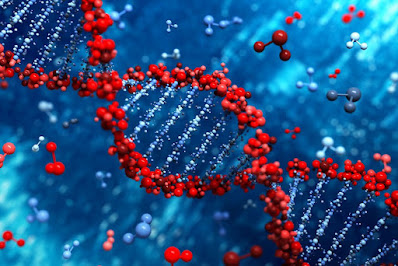Genome Engineering: The Future of Medicine
 |
| Genome Engineering |
What is Gene editing?
Genome Engineering refers to the direct modification of an organism's genetic
material. By making targeted changes to the genome, scientists and medical
researchers are now able to potentially cure genetic diseases, halt the
progression of cancer, and even enhance our natural abilities. Gene editing
utilizes new technologies such as CRISPR/Cas9 that allow precise editing of
DNA.
New Gene Editing Techniques
CRISPR/Cas9 has revolutionized the field of gene editing by providing a simple
and precise way to alter DNA sequences and modify gene function. This system
takes advantage of the bacterial immune system where Cas9 enzymes can be
programmed by small RNA molecules called CRISPR to target and cut specific
stretches of DNA. By delivering the Cas9 and appropriate RNA guides into cells,
researchers are able to alter genes with high accuracy. Other techniques such
as zinc finger nucleases and TALENs also allow specific changes to be made but
are more laborious to produce. The ease of use and flexibility of CRISPR/Cas9
has made it the dominant method for Genome
Engineering editing applications.
Potential Medical Applications
One promising application is to correct genetic mutations that cause inherited
diseases. Diseases such as sickle cell anemia, cystic fibrosis, and certain
types of cancer could potentially be treated by precisely repairing the
underlying genetic defects. Clinical trials are already underway testing
CRISPR/Cas9's ability to treat beta-thalassemia and sickle cell anemia by modifying
blood-forming stem cells. Gene drives developed using CRISPR could also help
eliminate mosquito-borne illnesses like malaria and Zika virus by altering
mosquito populations. Other medical goals include developing therapies against
HIV/AIDS by engineering patient's cells to resist viral replication. There is
also interest in treating neurological conditions like Huntington's disease,
Lou Gehrig's disease, and certain forms of blindness using genetic tools to
repair mutated genes or replace them entirely.
Ethical Concerns
While Genome Engineering holds great promise, it also raises important ethical
concerns that must be addressed. One issue is how to ensure modified genetic
changes are not passed down to future generations, known as the issue of germline
editing. Permanently altering the human germline could have unforeseen
consequences and challenges the natural order. There are also questions about
how to assess risk versus benefit and obtain proper consent when making
heritable changes to an individual's DNA. Equitable access is another major
issue as wealthy nations or individuals may be the primary recipients of new
gene therapies rather than those most in need. Proper oversight and guidelines
will be needed as this technology advances to prevent misuse and ensure
standards of safety and ethical practice are followed.
Enhancement Controversy
Beyond just medicine, some scientists and entrepreneurs argue that gene editing
could be used to enhance natural human traits and capacities, what is known as
human germline enhancement. Proposed non-therapeutic uses include selecting for
traits like intelligence, memory, physical strength or stature. However, the
technology is not advanced enough yet to reliably guide complex trait
development, and making heritable enhancements challenges concepts of human
dignity and natural evolution. It could also exacerbate existing social
inequalities and is generally opposed by most mainstream medical organizations.
For now the focus remains on developing gene therapies for medical purposes,
but as capabilities increase the debate over human enhancement will intensify.
Strict limitations would likely need to be placed on any non-medical genome
editing of human embryos or reproductive cells.
Gene Drive Applications
Despite ethical concerns surrounding human applications, gene editing via gene
drives has tremendous potential for environmental, agricultural and
conservation uses. One approach is to engineer organisms like mosquitoes or
crop pests so as to suppress their populations rather than just modify traits
in isolated individuals. Gene drive systems bias inheritance to favor a
particular trait, allowing it to spread rapidly through wild populations even
if it is not naturally advantageous. Trials modifying mosquitoes to reduce the
spread of malaria are underway. Agriculture may use gene drives to control
invasive weeds and insect pests in a targeted manner. Conservation efforts may
protect endangered species by engineering resistant traits into their wild
habitats. However, these applications also raise new risks that unintended or
irreversible effects could damage ecosystems, so rigorous testing and oversight
will still be crucial.
Moving Forward Responsibly
Overall, Genome Engineering represents both a potential revolution for medicine
and major challenges in its responsible and ethical application. By continuing
careful scientific progress and public dialogue, many of its promises can
hopefully be realized while minimizing unintended consequences. International cooperation
will be important to establish consistent standards and share new developments,
while civic participation ensures diverse societal viewpoints are considered.
If advanced judiciously and for the benefit of all humanity, this powerful new
technology need not be feared but embraced for how it may alleviate suffering
from disease, enhance conservation efforts, and give further insight into
life's most basic processes. But moving forward will require balancing promise
with precaution.
About
Author:
Money
Singh is a seasoned
content writer with over four years of experience in the market research
sector. Her expertise spans various industries, including food and beverages,
biotechnology, chemical and materials, defense and aerospace, consumer goods,
etc. (https://www.linkedin.com/in/money-singh-590844163)



Comments
Post a Comment